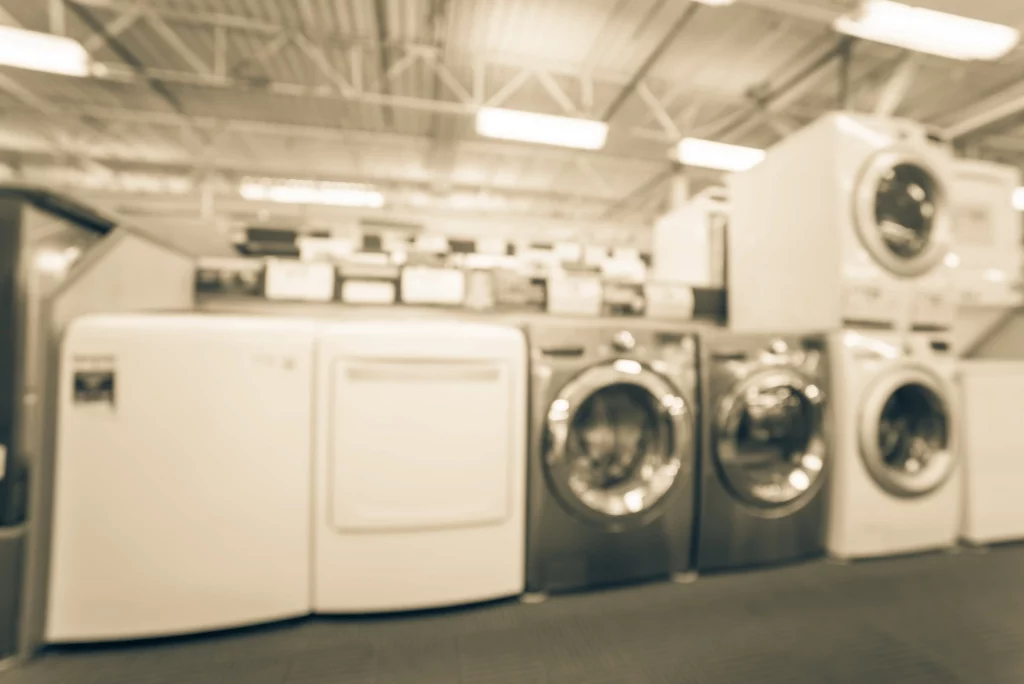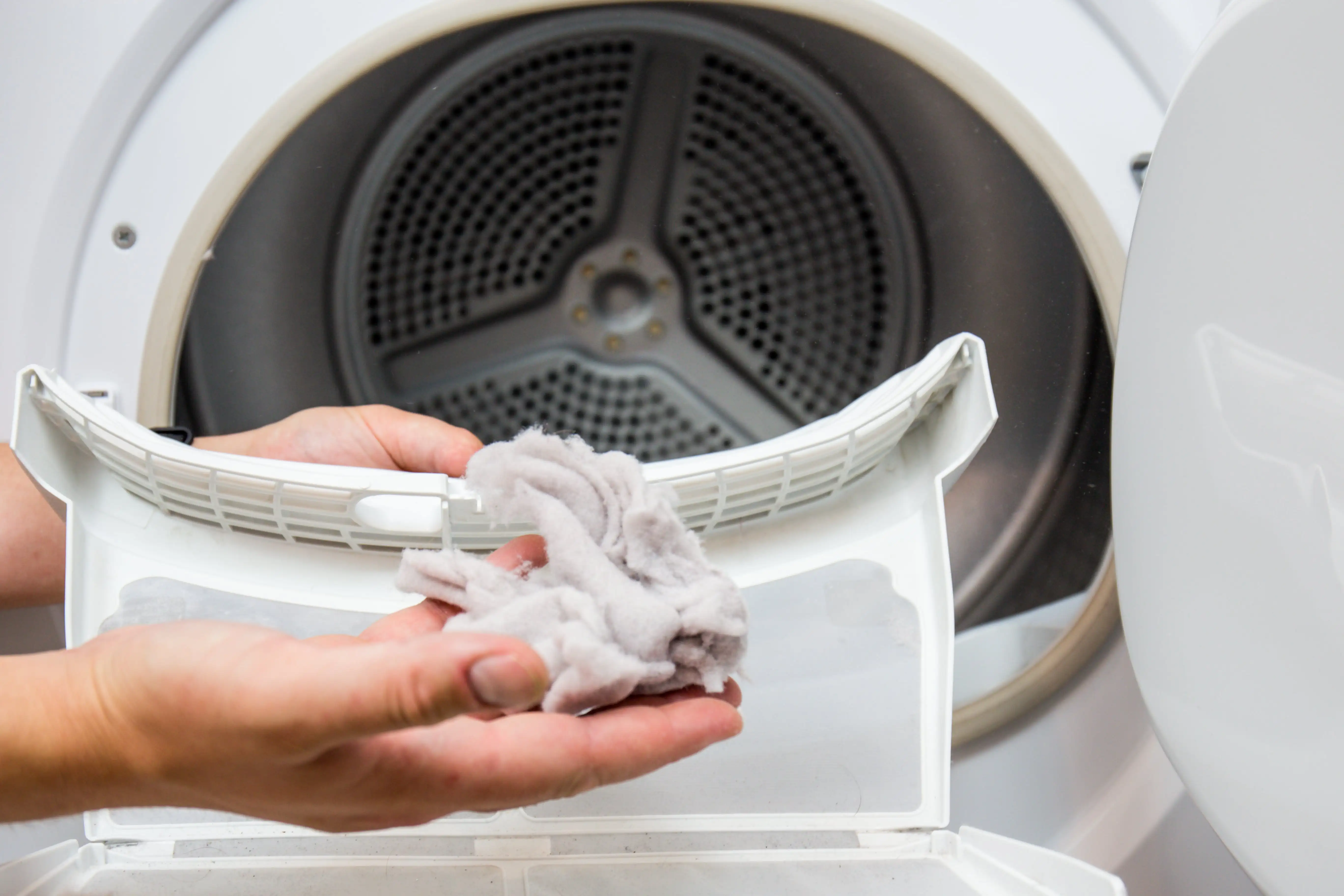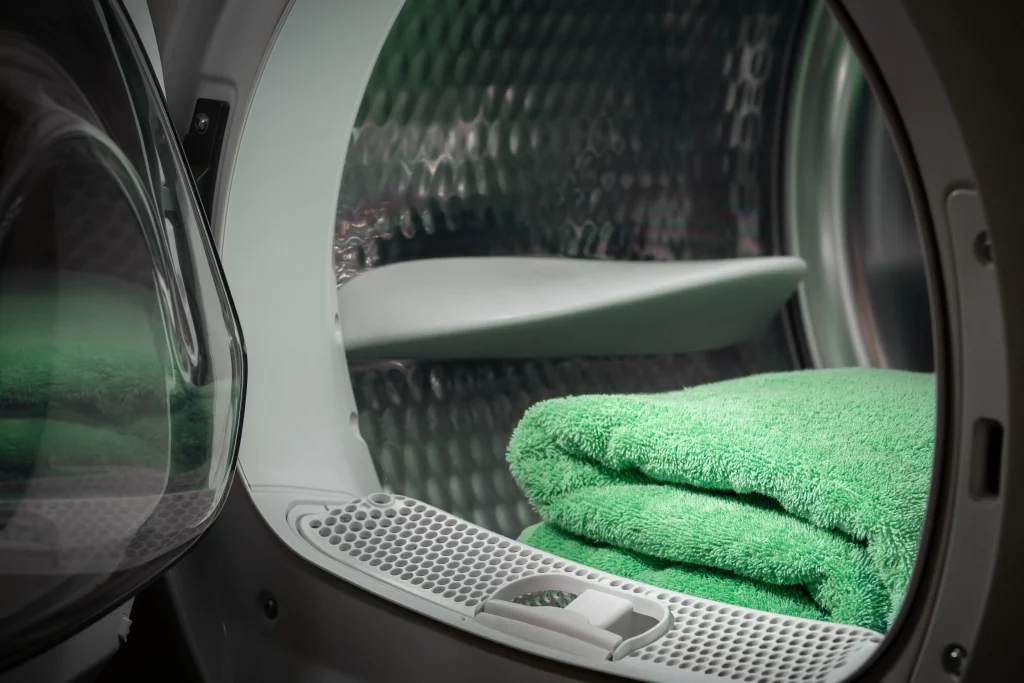 Get How-To's
Get How-To'sGarment Guides
Gas Dryer vs Electric Dryer

If you are on the hunt for a new dryer, you may feel overwhelmed by the number of options on the market. However, ultimately, you will want to research gas vs electric dryers, as this will help you narrow down your choices.
The battle between gas dryers and electric dryers has been ongoing for years. Homeowners often find themselves pondering over which option to choose, weighing factors like efficiency, cost, and environmental impact. Let’s take a look inside gas or electric dryers, highlighting their benefits and drawbacks to help you make an informed decision for your laundry needs.
Gas Dryer Vs. Electric Dryer – How They Work
Gas dryers operate on the principle of harnessing the power of natural gas or propane to generate heat. Picture this: you load your damp clothes into the drum, close the door, and press start. Inside the dryer, a gas burner ignites, creating a controlled flame. This flame is strategically positioned within the dryer’s combustion chamber. As the drum begins to rotate, the hot air generated by the gas burner circulates through the drum, enveloping your clothes. This heated air accelerates the evaporation of moisture from the fabric.
The beauty of gas dryers lies in the rapid heating capabilities of natural gas or propane. This quick ignition and heat production contribute to significantly reduced drying times. If you have a hectic schedule and need your laundry done in a jiffy, a gas dryer might be your go-to appliance.
On the flip side, electric dryers rely on a different source of power – electricity. At the core of an electric dryer is its heating element, often made up of coiled wires or a metal alloy. When you hit the start button, electrical current flows through these elements, and voila! Intense heat is born.
As the drum starts its rhythmic rotation, the electrically heated air circulates through the drum, coaxing moisture out of your clothes. Similar to the gas dryer, the resulting steam is ushered outside through a venting system, completing the drying cycle. Notably, electric dryers don’t involve open flames or combustion, contributing to a perceived sense of safety during operation.
Advantages of a Gas Dryer
When it comes to efficient and swift laundry drying, gas dryers emerge as formidable contenders, harnessing the power of natural gas or propane to ignite a laundry revolution. The advantages of gas dryers extend beyond mere speed, delving into economic considerations and environmental impact.
- Faster Drying Times: One of the significant advantages of gas dryers is their ability to heat up more quickly than electric counterparts. This leads to shorter drying times, which can be particularly appealing for those with a busy schedule.
- Lower Operating Costs: Natural gas is often more economical than electricity, translating to lower operating costs for gas dryers. This cost-effectiveness can be a compelling factor for budget-conscious consumers looking to save on utility bills.
- Energy Efficiency: Gas dryers are known for their energy efficiency, as they can produce heat more efficiently than electric dryers. This efficiency not only contributes to faster drying times but also reduces overall energy consumption.
Advantages of an Electric Dryer
Electric dryers, propelled by the seamless flow of electricity, introduce a symphony of convenience and cost-effectiveness into the world of laundry appliances. Take a look at the four advantages an electric dryer can offer:
- Installation Flexibility: Electric dryers have an upper hand when it comes to installation. They don’t require a gas line, making them more versatile in terms of placement within your home. This flexibility can be especially advantageous in houses without an existing gas connection.
- Initial Cost: Electric dryers generally have a lower upfront cost compared to their gas counterparts. If you’re on a tight budget or not planning to use the dryer extensively, this may be a significant factor in your decision-making process.
- Ease of Maintenance: Electric dryers are often considered easier to maintain. They have fewer components and generally require less attention over time, making them a convenient option for those who prefer appliances with lower maintenance requirements.
- Safety: Electric dryers are often perceived as safer since they don’t involve the use of combustible fuels. This may be a crucial consideration for households with safety concerns or those in areas with strict safety regulations.
Disadvantages of an Electric Dryer
While electric dryers bring a melody of convenience, they aren’t without their off-notes. Understanding the potential drawbacks is crucial for making an informed decision tailored to your needs. Electric dryers often play the slow and steady tune, with longer drying times compared to their gas counterparts. The time it takes for the heating elements to reach the necessary temperature can result in a more prolonged drying process, especially for laundered shirts, testing the patience of those seeking quick laundry turnarounds.
While electric dryers may shine in initial cost savings, they can play a costly tune over time. The cost of electricity tends to be higher than natural gas, leading to increased operating expenses. This financial consideration might sway the decision-making process for those mindful of long-term budgeting.
Disadvantages of a Gas Dryer
Even in the efficiency-packed world of gas dryers, there are a few discordant notes to be aware of. For starters, the upfront investment for a gas dryer is often steeper than its electric counterpart’s. This initial cost might deter budget-conscious consumers despite the potential long-term savings in operating expenses.
Gas dryers also come with a condition—they need a gas line. This prerequisite limits installation flexibility, especially in homes without a gas connection. The necessity of a gas line might be a deciding factor for those prioritizing versatile placement options for their laundry appliances.
Gas Vs Electric Ultimate Decision
Choosing between a gas and electric dryer ultimately depends on your specific needs and circumstances. A gas dryer may be the better choice if you prioritize faster drying times, lower operating costs, and a slightly smaller environmental footprint.
On the other hand, if installation flexibility, initial cost savings, and ease of maintenance are more critical factors for you, an electric dryer might be the preferred option. Before making this decision, consider your budget, available utilities, and long-term usage patterns. In the end, the “better” option is the one that meets your specific needs and preferences.
Experience the epitome of laundry efficiency and care at CD One Price Cleaners – where convenience meets quality. Visit us today for a seamless and affordable laundry experience!



